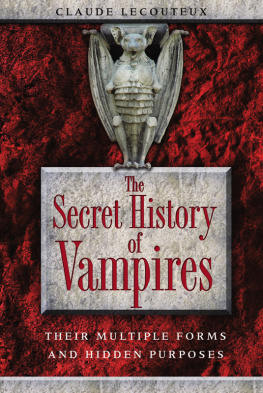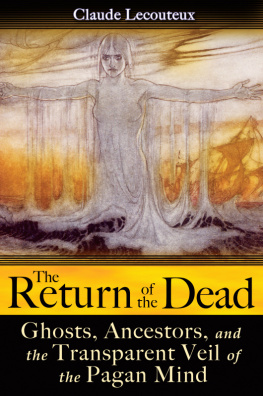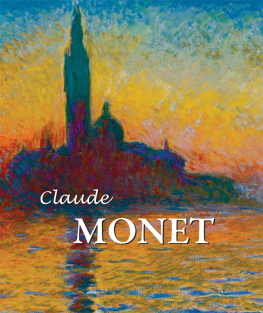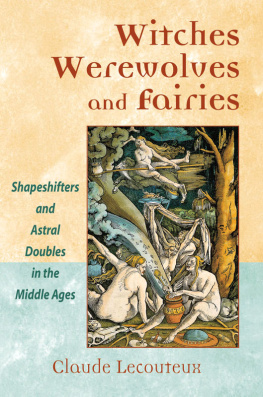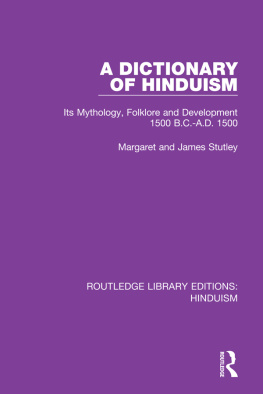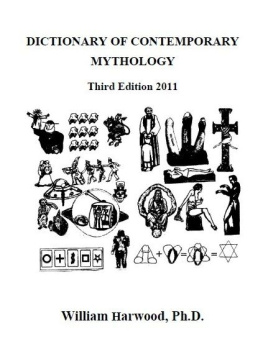Claude Lecouteux - Dictionary of Gypsy Mythology
Here you can read online Claude Lecouteux - Dictionary of Gypsy Mythology full text of the book (entire story) in english for free. Download pdf and epub, get meaning, cover and reviews about this ebook. year: 2018, publisher: Inner Traditions/Bear & Company, genre: Detective and thriller. Description of the work, (preface) as well as reviews are available. Best literature library LitArk.com created for fans of good reading and offers a wide selection of genres:
Romance novel
Science fiction
Adventure
Detective
Science
History
Home and family
Prose
Art
Politics
Computer
Non-fiction
Religion
Business
Children
Humor
Choose a favorite category and find really read worthwhile books. Enjoy immersion in the world of imagination, feel the emotions of the characters or learn something new for yourself, make an fascinating discovery.

- Book:Dictionary of Gypsy Mythology
- Author:
- Publisher:Inner Traditions/Bear & Company
- Genre:
- Year:2018
- Rating:5 / 5
- Favourites:Add to favourites
- Your mark:
- 100
- 1
- 2
- 3
- 4
- 5
Dictionary of Gypsy Mythology: summary, description and annotation
We offer to read an annotation, description, summary or preface (depends on what the author of the book "Dictionary of Gypsy Mythology" wrote himself). If you haven't found the necessary information about the book — write in the comments, we will try to find it.
Dictionary of Gypsy Mythology — read online for free the complete book (whole text) full work
Below is the text of the book, divided by pages. System saving the place of the last page read, allows you to conveniently read the book "Dictionary of Gypsy Mythology" online for free, without having to search again every time where you left off. Put a bookmark, and you can go to the page where you finished reading at any time.
Font size:
Interval:
Bookmark:
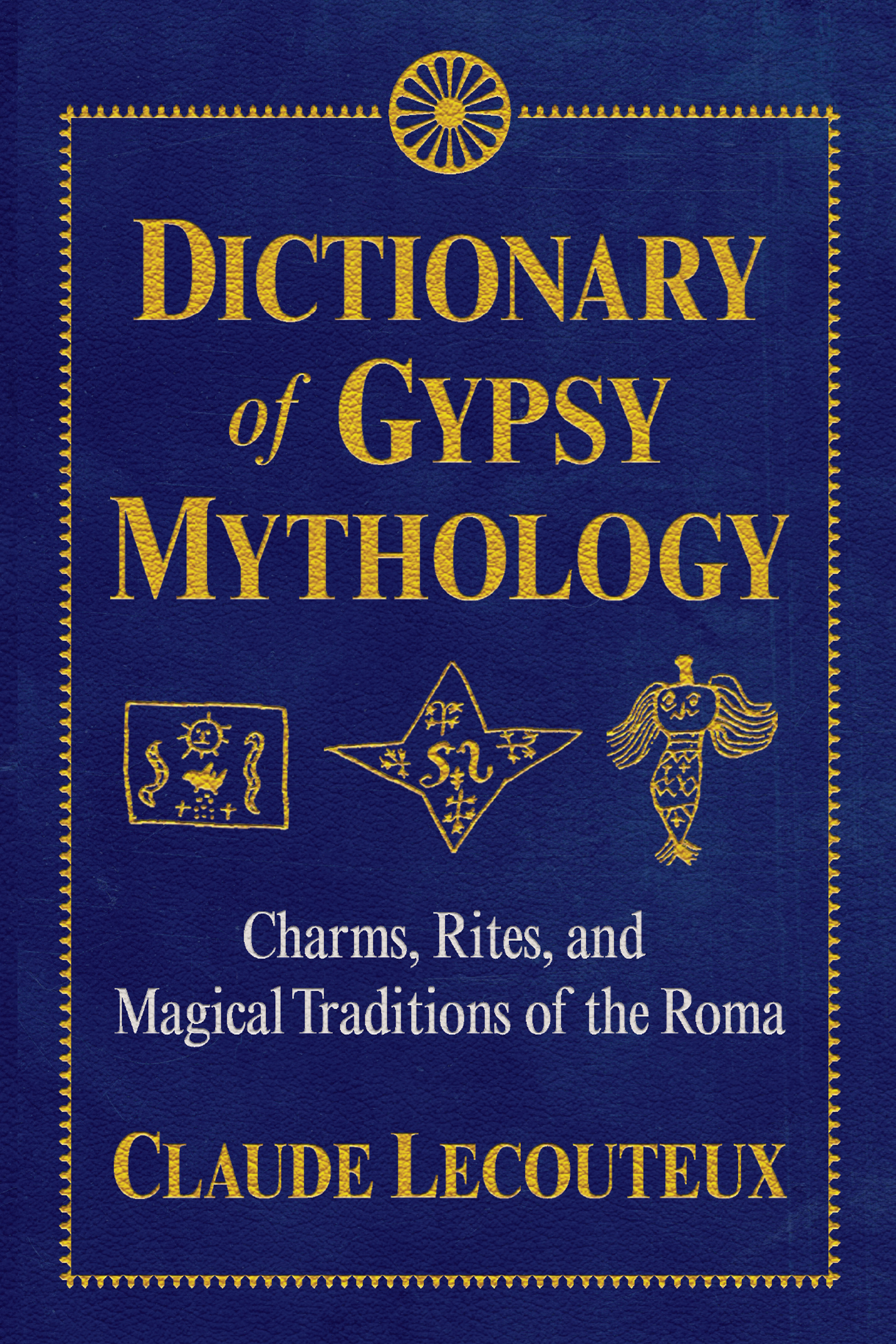
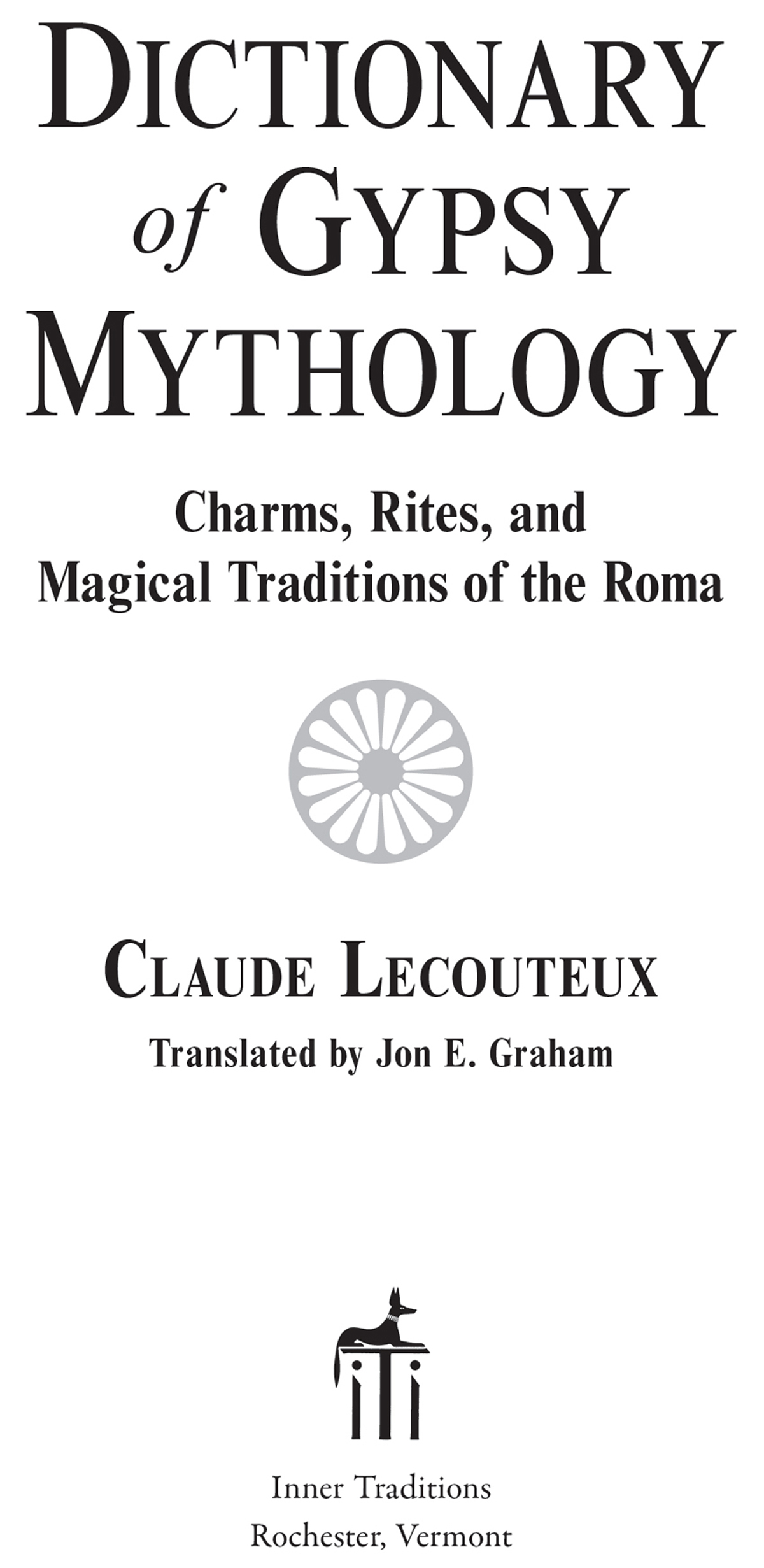
DICTIONARY OF GYPSY MYTHOLOGY

Dictionary of Gypsy Mythology by Claude Lecouteux is an eye-opening revelation of the wealth and riches of a people and culture struck by hatred and poverty from their fellow humans due to their needs and ways. A deeply needed recognition and sharing of a group long reviled and antagonized that was able to keep its soul alive in the face of persecution. Truly the heart of the Gypsy is worth its weight in gold. An invaluable history and insight into a unique and strong people.
MAJA DAOUST, WITCH OF THE DAWN,
COAUTHOR OF THE SECRET SOURCE, AND
AUTHOR OF WHITE WITCH TAROT
With the Dictionary of Gypsy Mythology, Claude Lecouteux has filled a void long overdue in its need for address. He approaches a mysterious and all too oft misunderstood culture with respect, compassion, and genuine interest. The resulting text is compelling, informative, educational, and practical, as the alphabetical layout lends itself to research as well as reading for pleasure.
VANESSA SINCLAIR, PSY.D., PSYCHOANALYST, ARTIST,
AND AUTHOR OF SWITCHING MIRRORS
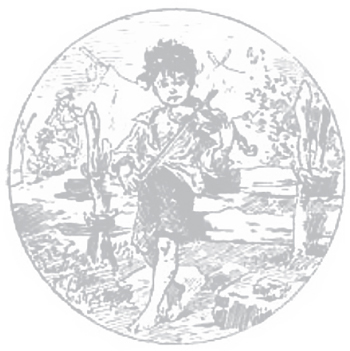
INTRODUCTION
THE PEOPLE OF ORAL TRADITION
The Roma (or Romany/Romani, a term that also designates their language)better known in many countries as Gypsiesare a traditionally nomadic people suffering from the inveterate hostility of local populaces who regard them as misfits, intruders, and foreigners. Sedentary peoples have always viewed wanderers with suspicion, and Gypsies have been attributed with every shortcoming over the centuries. with these professions being an aspect of their identity. Nevertheless, they led a wretched life, and Engelbert Wittich collected a poem in 1911 that describes their situation.
Me hom i tikno, tschorelo Sindenger tschawo.
Mer Dai muies da mer Dad hi stildo.
Gamlo, baro Dewel! Me hom kiake tschorelo
Tta mer Dades ano Stilapen, les hi bokhelo.
Man hi tschi har mer Baschamaskeri.
Me lau la da dschau ani Kertschemi,
Dschin da has i bresla lowe man.
Naschaua pascha mer Dad ano Stilapen,
Djomles gaua lowe, job has froh:
Gana hilo buter kenk bokhelo!
I am a poor Gypsy child
My mother is dead, my father is in prison,
My God, great God! I am so pure,
My father is in prison and he is starving.
I have nothing besides my instrument.
I take it and go to the in n
To earn a little money.
I went to visit my father in prison,
I gave him some money, and he is content:
Now he is no longer starving!
All the ethnologists of the eighteenth and nineteenth centuries noted the propensity of the Gypsies for thievery, and in 1868 Jean-Alexandre Vaillant collected some illuminating evidence of this in the form of a dialogue.
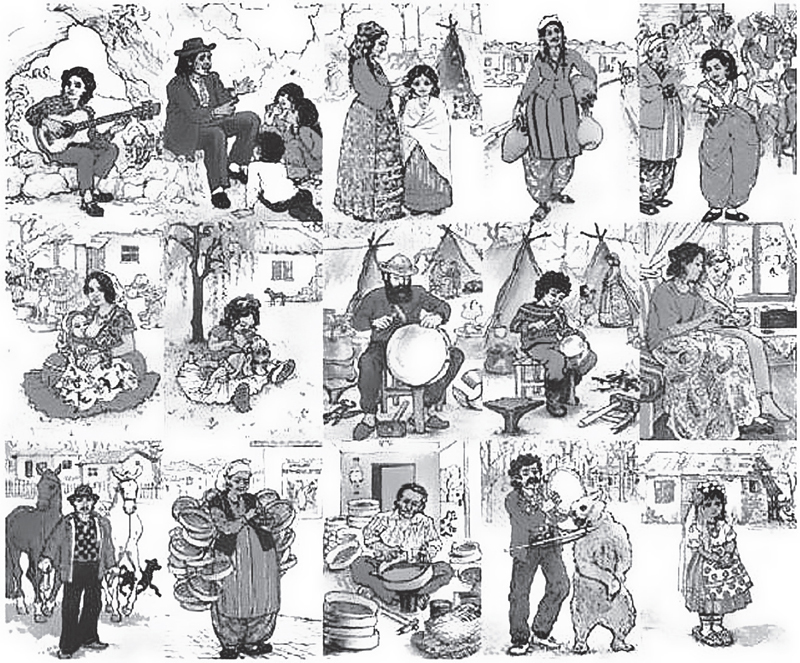
The Trades of the Gypsies
Who do you call modorons (modorani)?
Modorons are all the thieves of the highways.
Do they have a god?
They believe in neither god nor the devil.
Yet it is said that they pray to God?
Yes, they pray to the god of thieves (devles oresks).
Would you be able to tell me their prayer?
I can do that for you because I know it, and this is it:
Divine charity, I beg you to give me everything I ask of you because you are beautiful, great, and strong.
If you permit me to rob the tightwads of their brandy, rogome (i iagali), a chicken, a goose, a lamb, a sow, and a cow, I will give you a large candle.
If I steal something and folk come into my home to see what I have stolen to go tell the master, and do not see anything, I will give you two large candles.
If the police come into my house, and then leave because they did not see anything, I will give you three large candles because you are the great trinity.
The poor reputation of the Gypsies is often reflected in the names that were given to them. We may take as an example a name from Norway; here they were called Skyer, meaning thieves.
Originating in India, as has been shown by studies of their language, the Gypsies reached Europe in the ninth century and spread across the continent from east to west.
Byzantium: ninth century
Crete: 1332
Corfu: 1346
Wallachia: circa 1370
Romania: 1385
Hungary: 1417
Germany: 1417
Switzerland: 1418
France: 1419
Denmark: 1420
Italy: 1422
Bologna: 1422
Catalonia: 1447
Spain: 1447
England: 1460
Scotland: 1492
Russia: 1500
Poland: 1501
Sweden: 1512
Finland: end of the sixteenth century
A variety of legends explain why the Gypsies have no nation and are condemned to wander eternally.
It is their name, however, that feeds the myth of their Egyptian origin. In France they were initially called gyptiens (Egyptians) and later Bohmiens (Bohemians), Manouches, and Romanichels. Similarly, in Greece they are called Gyphtoi (), in Albania Evgit, in Holland Egyptnaaren then Giptenaers), in Britain Egipcions (and later Gypsies), in Spain Egiptcians (later gitanos); whereas we find terms related to the French word Tzigane in countries such as Bulgaria (Cinganin), Romania (Cignu), Germany (Zigeuner), Norway (sigynere), and Italy (Zingari, Zingani). The Gypsies call themselves Roma (sg. Rom; fem. Romni), Romani/Romany, have, Sintei, Mnu (man), and Kale or Mellle (dark or black).
Other names were given to them in Scandoromani (the Romani dialect of Scandinavia): Romanis"i, Romanoar, and Tavringer.
Many cultural facets of this traditionally oral peopleand therefore a culture more susceptible than others to the erosion of timehave vanished since the nineteenth century, which saw the creation of a discipline later called Gypsology. We have no right to any form of writing; that is our curse, stated the leader of a Gypsy clan in the 1950s,
It was in the 1870s that the linguist and folklorist Heinrich Adalbert von Wlislocki (18561907)considered by Charles Godfrey Leland as the first Gypsologist
During the summer of 1883, Wlislocki accompanied one of these nomadic tribes, following them for several months as they traveled into southeastern Hungary, and performed the duties of an ethnologist in the field and a folklorist. He collected a wealth of information, and the principal works on this people are always inspired by his research. He systematically gathered rites, traditions, tales and legends, songs, proverbs, nursery rhymes, jokes, magic charms, and healing recipes, which altogether amount to a very rich collection. For Wlislocki, the most ancient and primitive literary manifestation of a people is in its tales and legends, which reveal its way of thinking, its past and present circumstances, its concepts and customs, and its deepest spirit in the most genuine way. Stating that we could not understand these stories without an extensive, in-depth knowledge of the people to whom they belong, he goes on to remark:
Next pageFont size:
Interval:
Bookmark:
Similar books «Dictionary of Gypsy Mythology»
Look at similar books to Dictionary of Gypsy Mythology. We have selected literature similar in name and meaning in the hope of providing readers with more options to find new, interesting, not yet read works.
Discussion, reviews of the book Dictionary of Gypsy Mythology and just readers' own opinions. Leave your comments, write what you think about the work, its meaning or the main characters. Specify what exactly you liked and what you didn't like, and why you think so.

